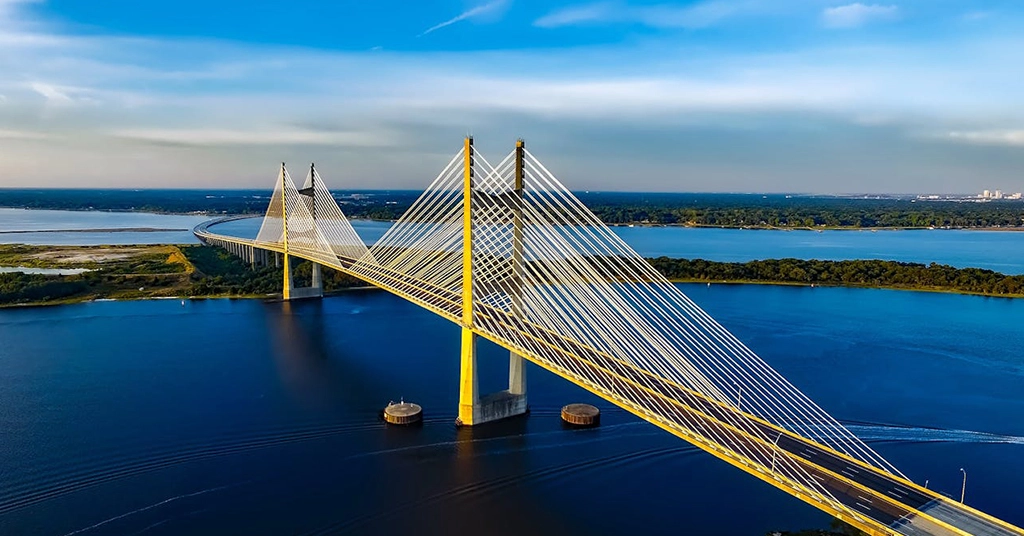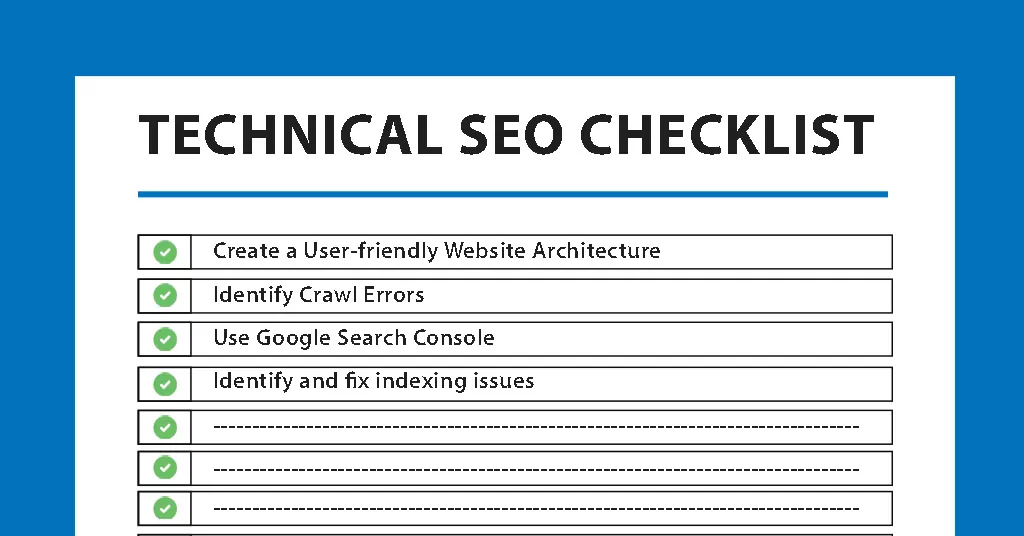On-Page SEO vs Off-Page SEO
Table of contents
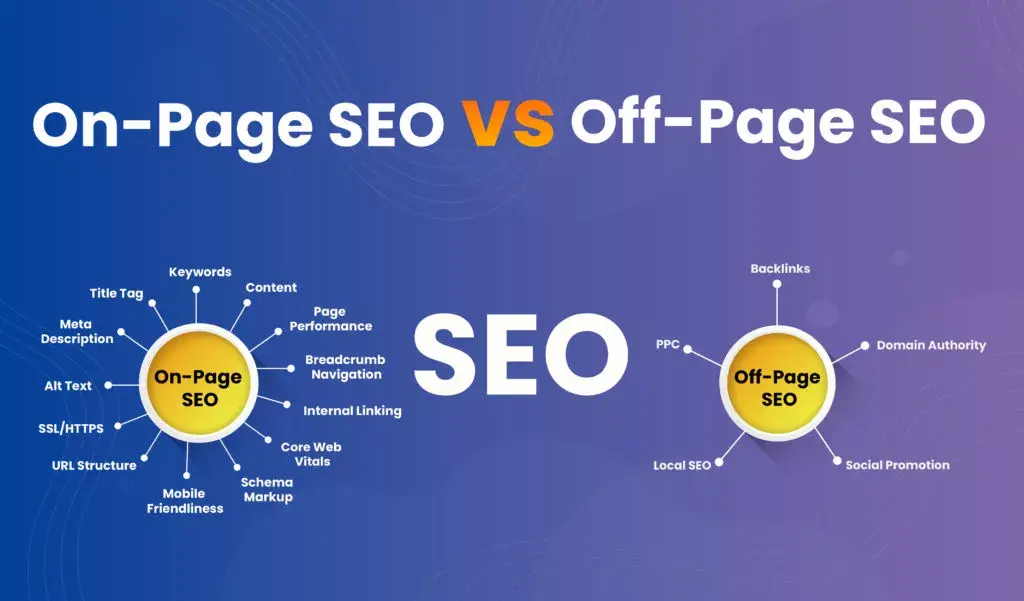
Hello everyone, digital marketers and website owners out there! Are you eager to start your journey through SEO and discover how to increase your website ranking and organic traffic? Well, buckle up because we’re about to embark on a journey through the two essential pillars of search engine optimization: There are two types of SEO, namely on-page and off-page SEO.
What is On-Page SEO?
First of all, it is necessary to discuss what is meant by on-page SEO. This is where the magic happens within your website. As per Jacksonville SEO experts, it is all about squeezing every inch to ensure that your site is both search engine friendly and friendly to the users. On-page SEO is like preparing the groundwork for a house to be constructed; you want to make sure that your house is strong and can stand tall.
On-Page SEO Checklist
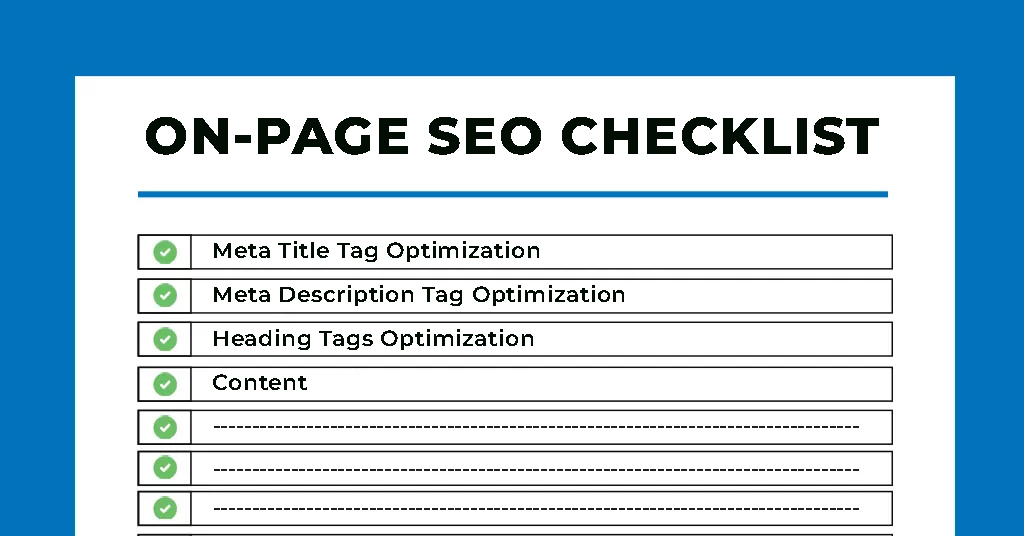
Now, We know what you might be thinking: “Where do we begin with on-page SEO?” No need to fret; We’ve compiled a list for you below:
- Meta Title Tag Optimization: Create specific and specific headings for each page that include the specific keywords. It should not be more than 70 characters long and should be catchy enough to make people click.
- Meta Description Tag Optimization: Ensure that you write short meta descriptions of not more than 150 characters that incorporate your targeted keywords and compel users to click through to your site.
- Heading Tags: Use keyword-rich headings (H1, H2, H3, etc.) to guide the users and search engine crawlers on the structure of the content.
- Content: Write fresh, interesting, and useful material that does not seem forced when you are inserting your keywords. Ideally, each post should be at least 500 words long, but you can write more and focus on delivering the most valuable information to your readers.
- URL Optimization: Short, simple, and packed with keywords, that is the best way to describe URLs. Ensure that each page has a different URL and use hyphens to separate the words.
- Images: An image is said to be worth a thousand words, therefore it is important to ensure that the images you choose are worth their weight in SEO. Remember to add alt text for images and use the keywords in the file names of the images.
- Keyword Consistency: It is recommended to use your main keywords several times on the page, but not too frequently. It is important that your content reads well and does not appear to have been written with the express purpose of including a certain keyword.
- Internal Links: Make it easier for the users and search engines to find other related pages within your site by using keyword-based links.
- Sitemap: Make a sitemap and submit it to Google so that all your pages can easily be indexed by search engines.
- Robots.txt: Use your robots. This is a text file that determines which pages of a website should be made accessible to search engine crawlers for indexing.
- Page Speed: Everyone hates a slow website and so do the search engines. This is a sure way of ensuring that the visitors stay longer on your site and also help you rank higher.
- In-Page Links: Do not overdo the links on your pages. Excessive link numbers can water down the content and make it hard for search engines to understand the flow of the content.
- Page Indexing: Ensure that your key pages are crawlable by search engines so that users can locate them easily.
- Text/HTML Ratio: Do not overdo the use of HTML code on your pages and do not overdo the use of text. More text is always better as it gives more chances to insert keywords and offer something valuable to the audience.
- Use of Multimedia: Use pictures, videos, and other forms of media to capture your audience’s attention but ensure they do not hinder the loading speed of your site.
- Social Media Signals: Promote your content on social networks so that more people can see it and prove to the search engines that your content is useful.
- HTML Errors: To make your site’s code as clean as possible and to remove any errors or inconsistencies that may confuse the search engine.
- Site Uptime: Ensure your website is always available to the public to reduce instances of users being locked out by a site that is down.
- Usability: Focus on the user experience by making your site easy to navigate and responsive to the device being used to access it.
- Outbound Links: Use links to other credible sources to offer more information to your readers and the search engines as a sign of credibility.
Wow, that was quite a list! But I assure you, if you spend time fine-tuning each of these on-page factors, you will be rewarded in the future.
What is Off-Page SEO?
Now, let’s talk about the other side of the SEO coin: Off-Page SEO. As per SEO Jacksonville experts, This is where you move out of your website and start working on your reputation and authority online. Just like in school, you want other websites to link back to you and say, “Hey this site is awesome.”
Off-Page SEO Checklist
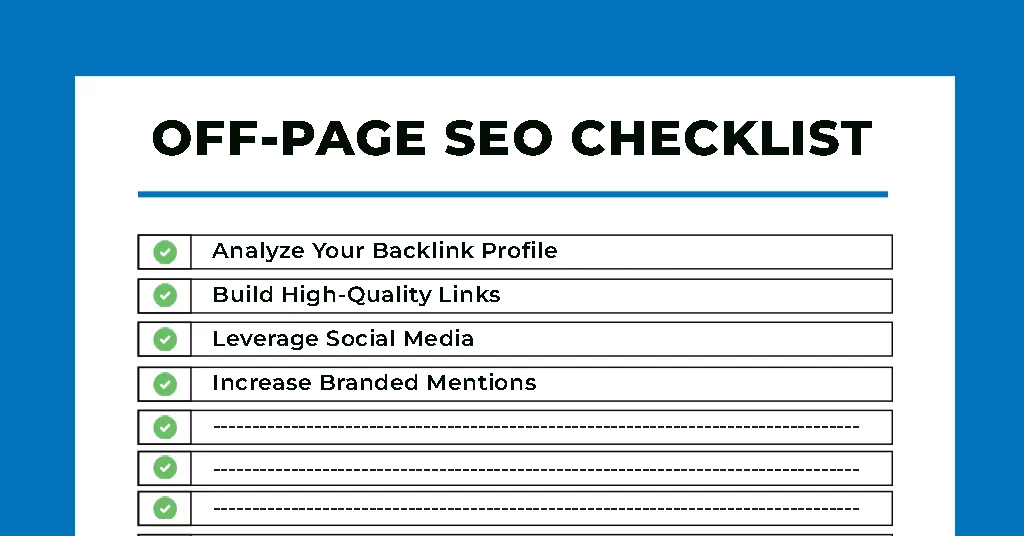
Here’s a checklist to help you navigate the world of off-page SEO:
- Analyze Your Backlink Profile:
- Know your position by looking at the quality and the number of backlinks that are linking to your site. Some of them include Google Search Console or Ahrefs.
- It is advisable to focus on the natural backlinks from authoritative sources that are somehow related to your topic.
- Build High-Quality Links:
- Concentrate on guest blogging on other relevant websites in your field. Develop content that is useful and will attract links on its own without the need for link building.
- Explore broken link building. Locate dead links on related sites and provide your material as a superior option.
- Leverage Social Media:
- Engage your content on social media platforms in a selective manner in order to enhance brand visibility and traffic flow back to your website.
- While likes and shares do not directly impact the ranking of your site, social media engagement can affect the search rankings in an indirect manner.
- Increase Branded Mentions:
- Promote brand mentions online even if it is not linked. This is because positive brand mentions help to establish trust and credibility with search engines.
- Another way to create awareness is to use online competitions or sweepstakes to get people to talk about your brand.
- Optimize for Local SEO:
- If you are involved in local business, then you need to claim and update your business listings on the local directories and citation sites. Make sure that your Name, Address, and Phone Number (NAP) are the same on all your listings. It should be the same on all directories and citation sites for Local SEO optimization.
- Promote positive feedback from customers on Google My Business and other local platforms.
- Content Promotion & Outreach:
- Don’t just produce good content, share it! Engage the journalists, bloggers, and other influencers in your niche and share your work with them.
- It is possible to establish contacts with representatives of the industry and receive backlinks as a result of cooperation.
- Public Relations & Brand Building:
- Advertising can be done through the use of newsworthy events or achievements that are associated with the brand.
- The positive media coverage can help in increasing brand recognition and in turn help in improving the search engine rankings.
- Online Forums & Communities:
- Engage in active participation in the related forums and groups and offer useful and informative responses. Make sure to provide a link to your website whenever it is possible.
- Introduce yourself as an expert in the particular field and, at the same time, get the chance to receive backlinks from the signatures or mentions.
- Broken Link Building:
- Go further than broken link-building by using more sophisticated tools to find out large-scale link-building prospects.
- Approach webmasters of other sites and request them to exchange the broken links with the relevant content from your site and this can be an opportunity to get quality backlinks.
- Guest Blogging on High-Traffic Sites:
- Do not limit your search to industry blogs. Think about guest blogging on high-traffic websites with a wider audience that might still be interested in your topic.
- It will help reach more people and get exposure to the business to new customers.
- Host Webinars or Online Events:
- You can also create yourself as an expert through hosting webinars or any online event that may be of importance.
- Advertise the event on social media and industry forums where the participants may link to the event and share it with their followers who may become customers.
- Collaborate with Complementary Businesses:
- Work with other complementary businesses that sell products to the same target market. Provide articles for other bloggers to post on their own site, co-present webinars, or organize promotions.
- This can broaden your audience and may result in backlinking from their followers.
- Online Reviews & Reputation Management:
- Ask satisfied customers to share their feedback on Google My Business, Yelp, or any other review site or platform that is relevant to the business.
- Positive reviews can be useful in establishing credibility with search engines and consumers.
- Utilize SEO Tools & Backlink Monitoring:
- Use SEO tools to analyze your backlink profile, discover new link-building opportunities, and assess your website’s SEO health.
- Be up to date and make evidence-based decisions to get the most out of off-page SEO.
Difference Between On-Page SEO Vs Off-Page SEO
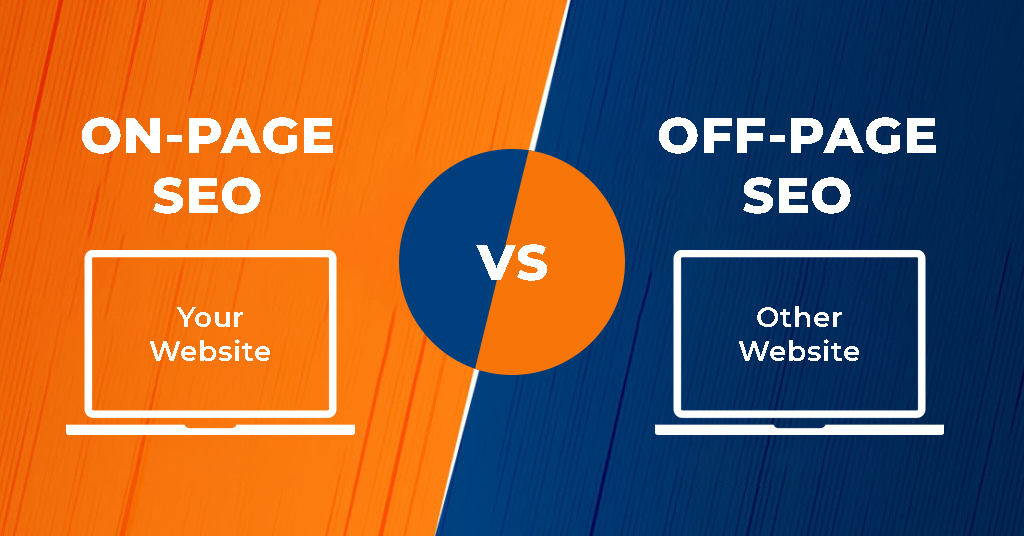
Now, you might be wondering, “What’s the difference between on-page and off-page SEO, and which one is more important?” Let’s break it down with Jacksonville SEO Company:
- Definition:
- On-Page SEO: Search engine optimization of the components of your website to enhance the ranking of the site and the experience of the users.
- Off-Page SEO: Activities performed outside the website that can help to increase its ranking on the search engine results page.
- Control:
- On-Page SEO: Search engine optimization is the process of making changes to your website to improve its ranking in the search engine results pages.
- Off-Page SEO: It has a low level of control as it depends on factors such as backlinks and social media shares.
- Content Optimization:
- On-Page SEO: Refers to the process of improving the website content based on keyword, quality, and relevance.
- Off-Page SEO: Concerns with how other websites link to and cite your content.
- Technical Aspects:
-
- On-Page SEO: It includes aspects such as title tags and descriptions, header tags, URL structure, internal linking, and meta descriptions.
- Off-Page SEO: This is the process of obtaining links, social media signs, and brands from other sites and platforms.
- User Experience:
-
- On-Page SEO: Improves the usability of the website by increasing the loading speed, optimizing for mobile devices, and improving the structure and organization of the site.
- Off-Page SEO: Enhances the user experience in a roundabout way by raising the ranking of your website among the most credible ones.
- Backlinks:
-
- On-Page SEO: This is a process of linking internal pages of your website, but not the backlinks.
- Off-Page SEO: It mainly depends on the process of obtaining relevant and reputable backlinks from other websites.
- Social Signals:
-
- On-Page SEO: Adapts the content to be easily shared on the different social media platforms.
- Off-Page SEO: It uses engagement, shares, and mentions on social media to enhance search engine results.
- Reputation Management:
-
- On-Page SEO: Involves ensuring that your website itself is credible and authoritative.
- Off-Page SEO: It involves the control of the external communications, mentions, reviews, and testimonials about the product.
- Immediate Impact:
-
- On-Page SEO: This may lead to more immediate changes in the search rankings as soon as the changes are crawled and indexed by the search engines.
- Off-Page SEO: It can take longer to yield the desired outcome since it entails creating a reputation within the targeted community.
- Measurement:
-
- On-Page SEO: By using on-site tools such as keyword placements, click-through rate, bounce rate, and time spent on the page.
- Off-Page SEO: By such off-site factors as the quality and quantity of backlinks, domain authority, and social media activity.
- Keyword Integration:
-
- On-Page SEO: This involves the use of keywords in the page title, meta description, headers, and in the body of the page.
- Off-Page SEO: Keywords are used more discreetly; they are mostly found in the anchor text of the backlinks.
- HTML Code Optimization:
-
- On-Page SEO: Demands clean and well-structured HTML code that is easily readable by search engine bots and easily indexable.
- Off-Page SEO: Not directly related to the HTML code of your site.
- Site Architecture:
-
- On-Page SEO: It involves the enhancement of the internal linking structure of your website to make it easier for the crawler to access and for the users to find what they are looking for easily.
- Off-Page SEO: It does not have a direct effect on your website structure or layout.
- Content Freshness:
-
- On-Page SEO: Needs constant updates and the generation of new, relevant content to remain relevant in the search results.
- Off-Page SEO: Whereas fresh content can help in getting new backlinks, the emphasis is on getting backlinks consistently in the long run.
- Content Depth:
-
- On-Page SEO: Promotes the production of high-quality articles that provide all the information about a particular subject.
- Off-Page SEO: It is not directly related to the depth of the content but it is useful to link to other quality and informative content.
- User Engagement:
-
- On-Page SEO: It is designed to engage users more with the help of interesting content, beautiful design, and easy-to-use interface.
- Off-Page SEO: Aim at bringing traffic from the external links, tags, and recommendations to your website with an engaged audience.
- Rich Media Optimization:
-
- On-Page SEO: It entails the best practices of using images, videos, and other forms of multimedia in your content.
- Off-Page SEO: Advantages of having high-quality multimedia content that is likely to attract links and shares from other websites.
- Schema Markup:
-
- On-Page SEO: Involves adding structured data markup to improve the snippets of search results and give more information to the search engines.
- Off-Page SEO: Not involved with schema markup on your website in a direct manner.
- Local SEO:
-
- On-Page SEO: It involves ensuring that the NAP details of your website and other local keywords are well optimized for local search.
- Off-Page SEO: It entails creating local citations and getting reviews on local business directories as well as review sites.
- Long-term Impact:
-
- On-Page SEO: It offers a good basis for a sustainable search engine presence and can yield a long-term effect on the website’s performance.
- Off-Page SEO: Helps to increase your website’s credibility and popularity in the long run, which results in gradual enhancements of the website’s position in the search results and the organic traffic.
Well, which one should you devote your time to? The fact is that on-page and off-page SEO are two major types of SEO that are indispensable for any SEO campaign. They complement each other to enhance the ranking of your website in search engine results, drive traffic to your site, and create brand awareness that associates your business with the industry.
Think of it like a car: While on-page SEO is the backbone of your website, off-page SEO is the oil that lubricates it. They are both necessary to achieve the goal you set for yourself.
In the next few sections, we’ll explore some of the tools that will help you maintain a healthy SEO engine. Here are some essential tools for conducting on-page and off-page SEO audits:
On-Page SEO Tools:
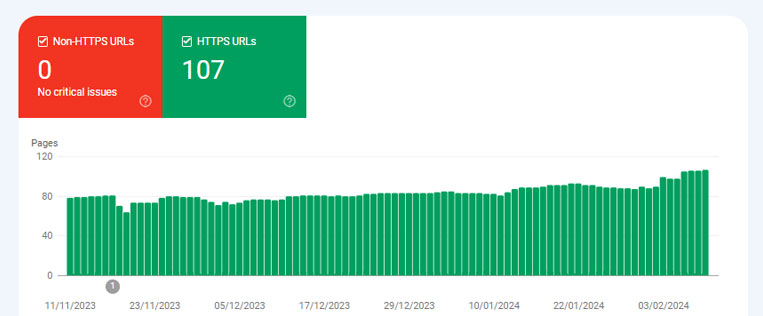
- Google Search Console: This free tool from Google is useful in assessing the technical aspects of your site, its ranking on the search engine, and crawl errors.
- Screaming Frog: A powerful website crawler that allows you to determine on-page SEO problems such as broken links, missing meta tags, and duplicated content.
- SEMrush: A comprehensive SEO tool that has an on-page SEO audit, keyword research, and competitor analysis options.
- Ahrefs: Another all-in-one SEO tool that comes with a detailed site auditor, content gap research, and keyword research tools.
Off-Page SEO Tools:
- Ahrefs: Besides, the on-page features, Ahrefs offers deeper backlink data that helps to evaluate the website’s link profile and find new link-building opportunities.
- Majestic: A great link intelligence tool that enables you to assess your website’s backlink, discover the linking domains, and track your competitors’ link-building activities.
- BuzzSumo: A content analysis and influencer search tool that can assist you in finding the most shared content in your topic and reach out to the influencers for link building and content sharing.
- Moz Link Explorer: A backlink checker tool that helps you to know the link juice, domain authority, and linking domains of your site.
Thus, by using these tools and performing on-page and off-page SEO check-ups regularly, you will be able to monitor the condition of your website’s SEO and make evidence-based decisions to enhance your website’s search engine performance.
Is On-Page or Off-Page SEO more important?
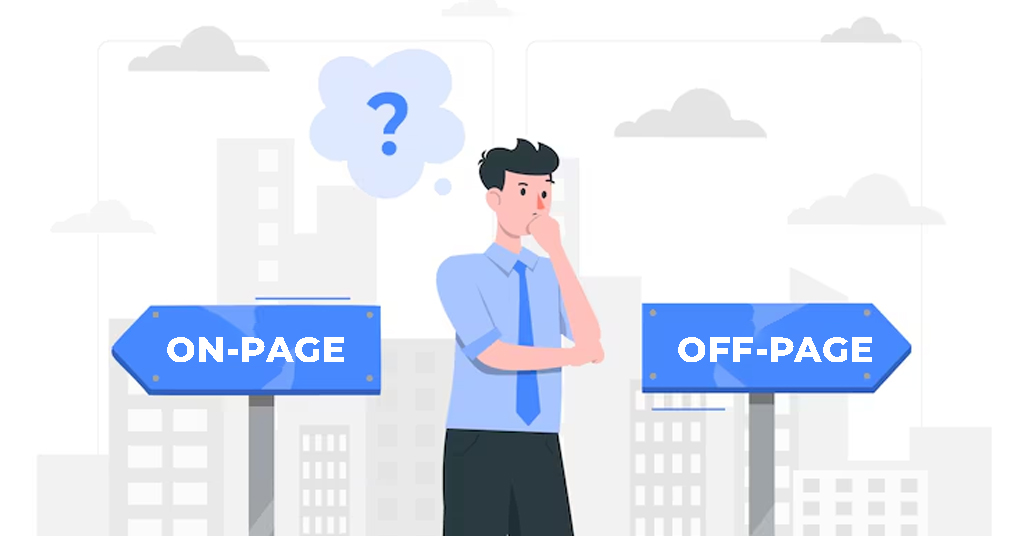
Now, I know what you’re thinking: “This all sounds great, but which one is more important? On-page or off-page SEO?” The answer is… drumroll, please… both!
Well, you know, on-page and off-page SEO are two sides of the same coin of search engine optimization. They are closely intertwined and interact with each other to achieve the best result, which will help your site to occupy one of the leading positions.
On-page SEO is like the frame of a car – it is the framework upon which everything else is built. However, no matter how great off-page SEO strategies are, if the content is not optimized, the technical aspects are weak, and the user experience is poor, it will not work.
On the other hand, off-page SEO is like the reputation of your house in the neighborhood. It is how other websites and other entities on the internet regard your website in terms of reliability, importance, and credibility. The more backlinks, shares on social networks, and positive references your site gets, the better chances it has of being considered a useful resource by search engines and thus ranks high.
On-page SEO is all about making your site appealing to search engines and encouraging people to come to your site, while off-page SEO is about making people aware of your site and encouraging them to come to it.
Thus, to answer the question of which one is more important, I would like to state that both on-page and off-page SEO are crucial for long-term successful SEO. On-page SEO entails the development of high-quality content that is optimized to meet the needs of the target market while off-page SEO involves the establishment of backlinks and relations that will enable you to dominate search results and drive organic traffic to your website.
Conclusion
To sum up, on-page and off-page SEO techniques are the most important factors that can help to optimize your website and increase its ranking in search engine results. By applying the checklists and recommendations provided in this guide, and by employing the appropriate tools to assess and enhance your website’s SEO condition, you can establish a comprehensive and effective SEO plan that yields measurable outcomes for your company.
Finally, it is important to understand that SEO is not a one-time activity, but a continuous process, which means that you should always learn, try new things, and adjust your strategy. It is therefore important to note that as search engines become more sophisticated and users’ behavior shifts, so does the SEO strategy. This way, you will be able to keep up with the current trends, methods, and strategies in on-page and off-page SEO to keep your website relevant in the current SEO industry.
Well, let the gloves come off, wear your SEO cap, and prepare for a great ride to the world of search engine supremacy! On-Page and Off-Page SEO tools are available for use and this means that there is no ceiling to the heights that your website can reach in terms of ranking.
Good luck with your optimization, you SEO soldiers!

